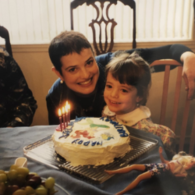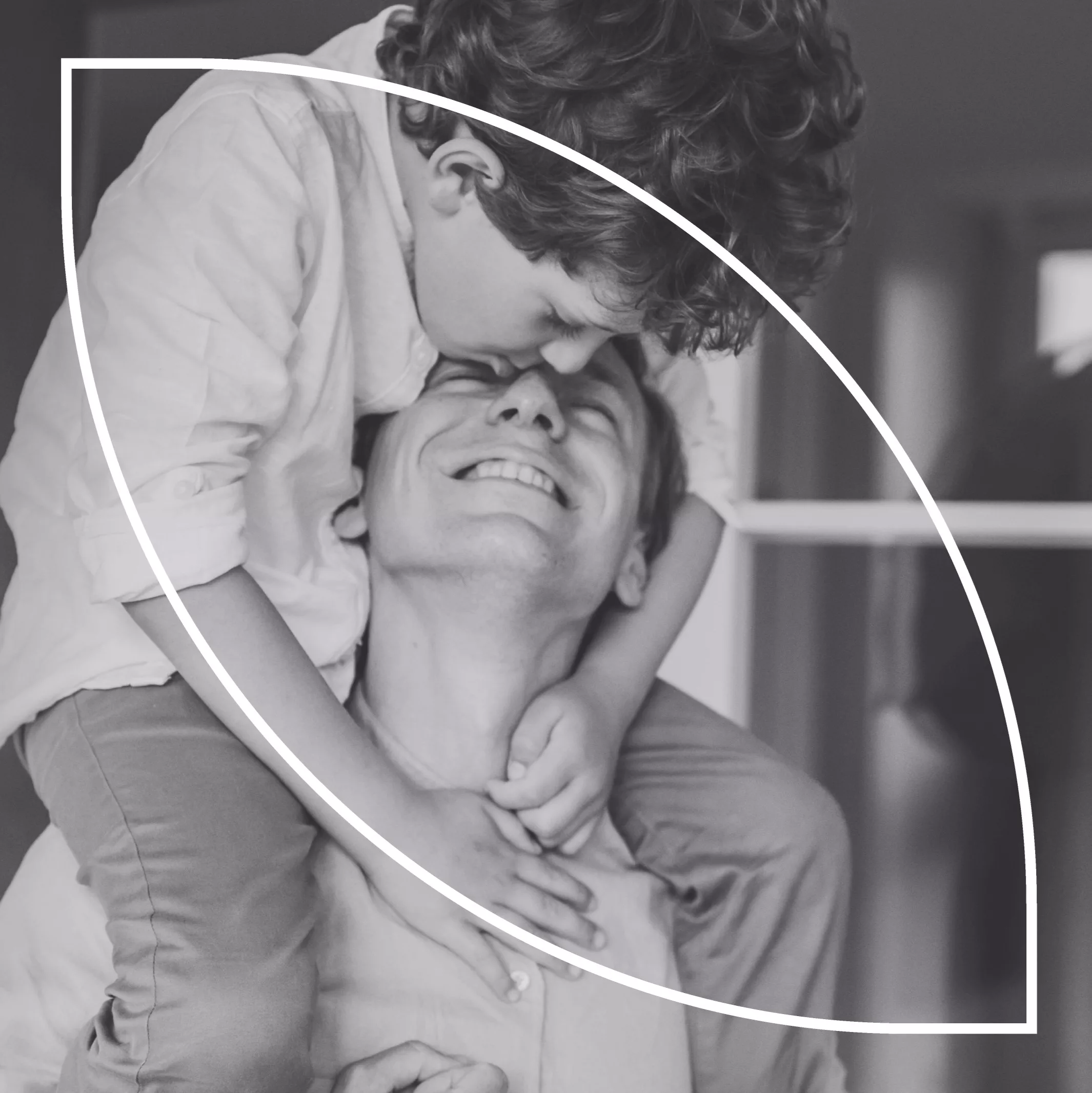
Research leads to advances in care. Researchers, like our very own Dr. Basik, are continuously working to advance our understanding of how to prevent, detect, and treat breast cancer.
Although one in eight women will be diagnosed with breast cancer in their lifetime, about 5 to 10 percent of those breast cancers are thought to be hereditary, caused by mutated genes passed from parent to child. Treatment emerges thanks to research!
“In September 1997, I was diagnosed with breast cancer,” said Romy. “Five months later, I was told that I was a BReast CAncer gene one (BRCA-1) positive.”
Many inherited breast cancer cases are associated with two gene mutations: BRCA1 and BRCA2. Women who have either mutation (or both) can have up to a 72 percent chance of being diagnosed with breast cancer during their lifetime.
“My kids grew up knowing that I had breast cancer but as kids, I never told them about the fact that I had the BRCA1 gene and that it could have been passed down to them,” said Romy. “We had a history of cancer in the family and I didn’t want them to be scared of cancer or grow up living in fear of dying from it like so many people do.”
The subject of a study in the nineties at the JGH which determined Ashkenazi Jewish women were substantially more likely to have a genetic mutation linked to breast cancer, Romy decided to let her daughter Kelsey know what may lie ahead for her when she turned 18.
Twenty years after Romy was diagnosed with breast cancer, Kelsey decided to get tested for the gene mutation as well.
“My story became our story, one that we started to navigate together,” said Romy.
Kelsey tested positive for BCRA1 in 2017, and in 2019, she received more bad news.
“I was diagnosed with triple-negative breast cancer about six months before my 25th birthday,” Romy’s daughter Kelsey said.
As if being diagnosed with cancer at such a young age wasn’t enough, Kelsey endured treatment and surgery at the JGH during the peak of the first wave of COVID-19.
“It was definitely strange and at-times lonely but I always felt safe upon entering the Jewish even though it was a designated Covid-19 treatment centre,” Kelsey said confidently. “I trusted my doctors, nurses and the whole team at the JGH to take care of me and to make the right decisions.”
Romy is also thankful to the JGH for similar reasons.
“Had I not been a part of the study for BCRA1, I would never have known I had a gene mutation. This knowledge has the potential to save generations of my family,” she said. “There isn’t a single hospital where teams work together like they do at the Jewish. My experience there was life-altering and I am so grateful for the staff there.”
Kelsey and Romy are now cancer-free and both expressed the need for more research and resources for women of all ages living with cancer.
“It’s not one-size-fits-all for treatment,” Kelsey added. “There are so many different breast cancers and we have to be able to treat people on an individual level. We still have so much to learn about metastatic breast cancer for example. We don’t talk enough about it as a treatable disease.”
Supporting research like Dr. Basik’s is vital. Together, we can make this happen. By giving to Dr. Basik’s research today and you will help saving generations of patients’ lives.
We are asking you to support Dr. Basik’s research as we strive towards conquering cancer in our lifetime.






 Donors are transforming healthcare at the JGH. We’ll show you how.
Donors are transforming healthcare at the JGH. We’ll show you how.